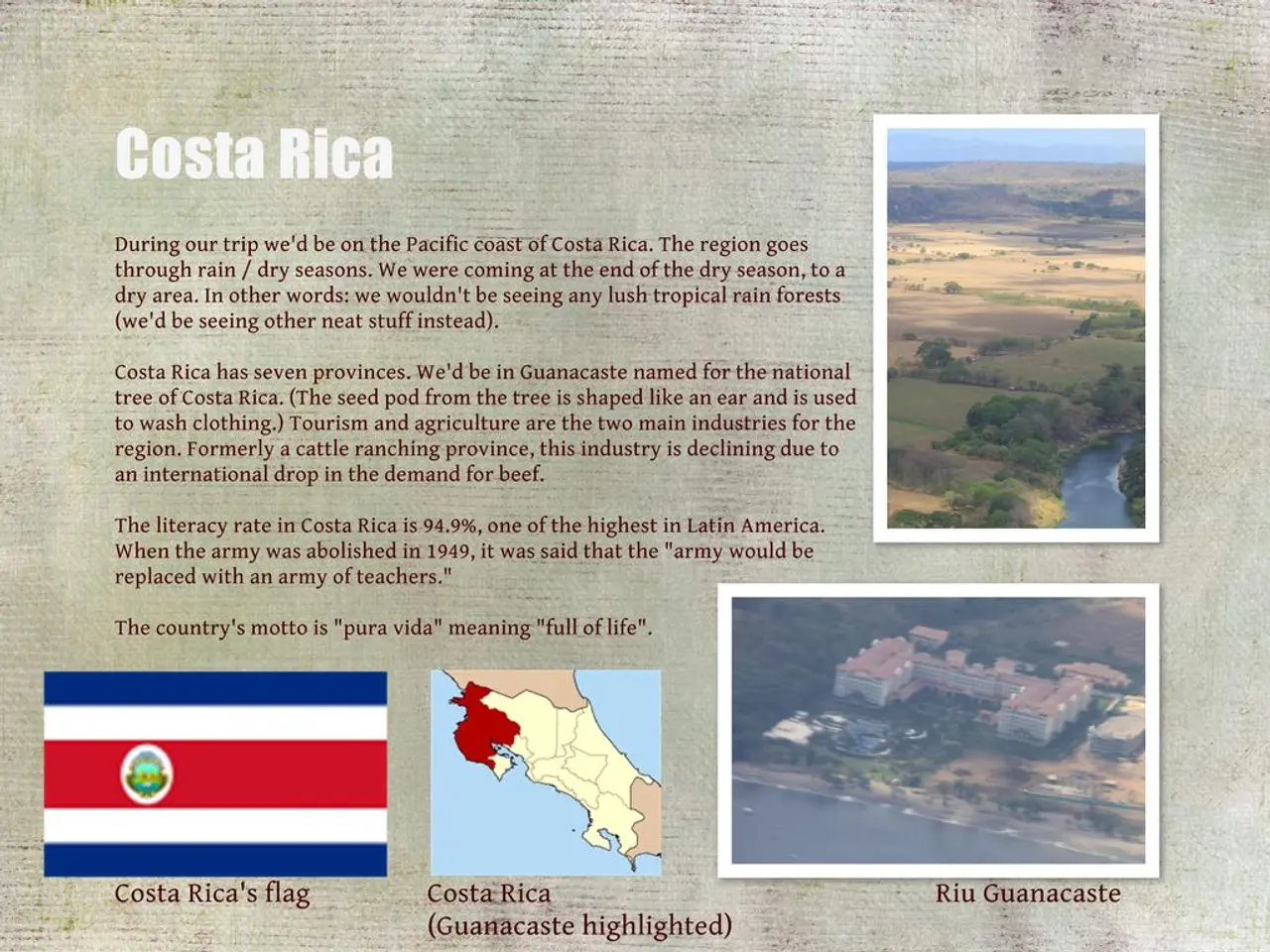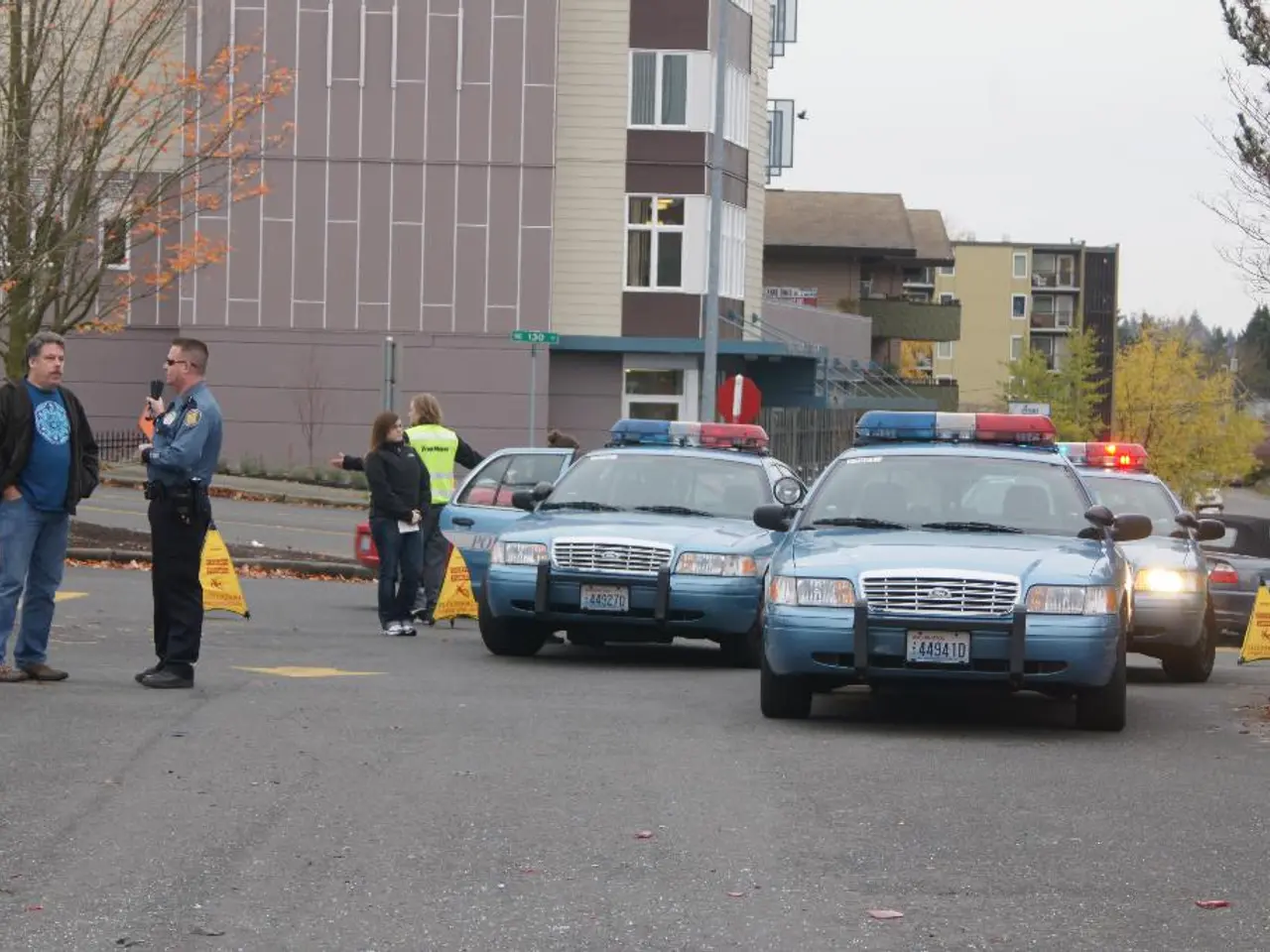U.K. court approves Palestine Action's founder's pursuit of contesting the designation as a terrorist organization
Palestine Action Co-Founder Launches Legal Challenge Against UK Government
Huda Ammori, co-founder of the pro-Palestinian direct action group Palestine Action, has launched a legal challenge against the British government's decision to ban the group under anti-terrorism laws. The High Court has granted permission for a full judicial review of the proscription, allowing the challenge to proceed.
Proscription of Palestine Action and the Alleged Terrorist Activities
The Home Secretary, Yvette Cooper, decided to ban Palestine Action following a series of activist actions, including breaking into RAF Brize Norton and spraying military planes with red paint, causing over £1 million in damage at a weapons factory in Glasgow, and targeting the defence technology company Elbit Systems UK. The ban came into force in early July 2025, making membership or support of Palestine Action a criminal offence with penalties up to 14 years' imprisonment.
Legal Grounds of the Challenge
Ammori's legal team argues the ban is a disproportionate and unlawful interference with rights protected by the European Convention on Human Rights (ECHR), specifically:
- Article 10: Freedom of expression
- Article 11: Freedom of association
- Article 6: Right to a fair trial
Justice Martin Chamberlain ruled that the claim was "reasonably arguable" that the proscription disproportionately interferes with these rights. He further upheld the argument that the Home Secretary breached natural justice by failing to consult Palestine Action before the ban.
Political and Legal Context
The proscription followed an affirmative resolution in both Houses of Parliament. It placed Palestine Action alongside internationally designated terrorist groups. The decision has been criticized by legal counsel representing Ammori as "an authoritarian and blatant abuse of power," and described as "repugnant to the tradition of the common law" and an international outlier. The UN High Commissioner for Human Rights also condemned the order as a "disturbing misuse" of counter-terrorism laws, calling it disproportionate and unnecessary.
Current Status
After a High Court interim judgment, the case is set for a full judicial review hearing, expected as early as September 2025. The maximum sentence for being a member of Palestine Action, under the proscription, is 14 years in prison.
In summary, Huda Ammori's legal challenge contests the legality and proportionality of the government's anti-terrorism proscription of Palestine Action, arguing it unlawfully restricts fundamental rights and lacks proper procedural fairness. The High Court has allowed this challenge to proceed to a substantive hearing.
This is a developing story and will be updated.
[1] BBC News, "Palestine Action: Co-founder launches legal challenge against UK government," 2025 [2] The Guardian, "Palestine Action banned under anti-terror laws," 2025 [3] Sky News, "Palestine Action: Co-founder launches legal challenge against UK government," 2025 [4] The Independent, "Palestine Action co-founder launches legal challenge against UK government's terror proscription," 2025
- The world has been following the ongoing legal challenge launched by Huda Ammori, co-founder of Palestine Action, against the UK government's policy-and-legislation regarding the group's proscription under anti-terrorism laws, given the political controversy surrounding the issue and the general-news coverage it has generated.
- The UK's decision to ban Palestine Action has not only sparked intense debates in the realm of domestic politics but also raised significant questions about the proper use of policy-and-legislation and the protection of fundamental human rights on the international stage.








